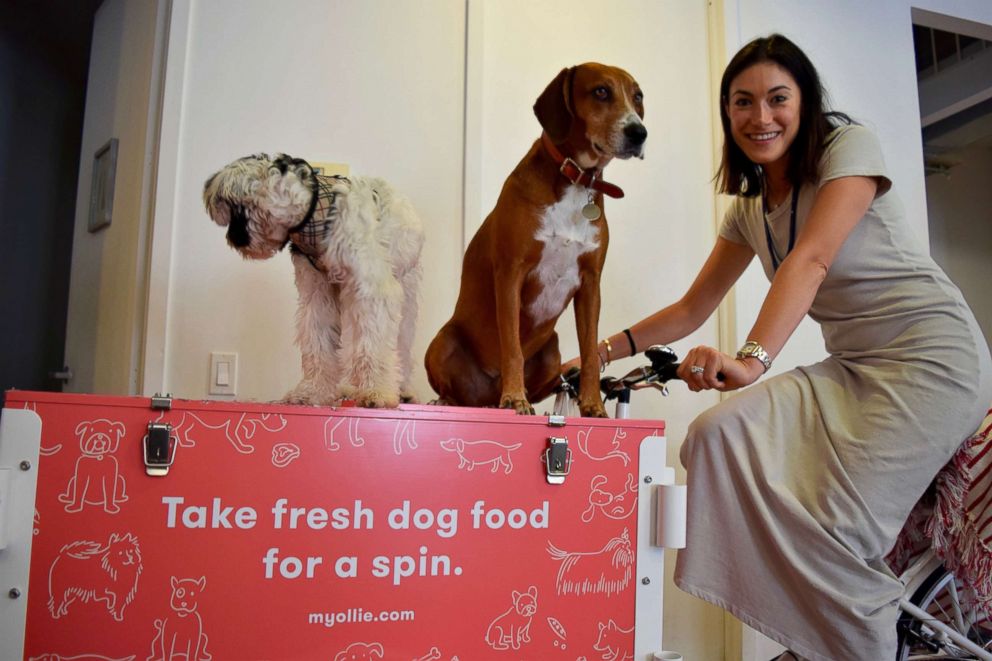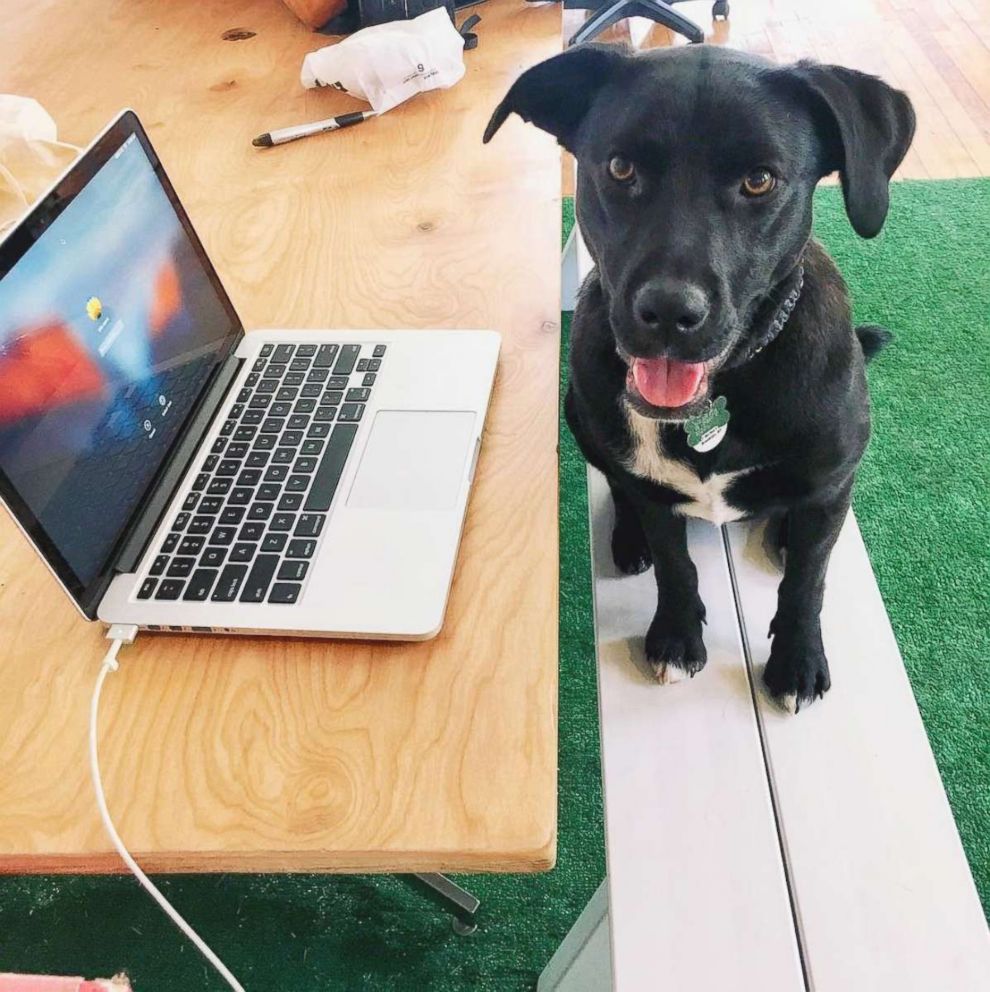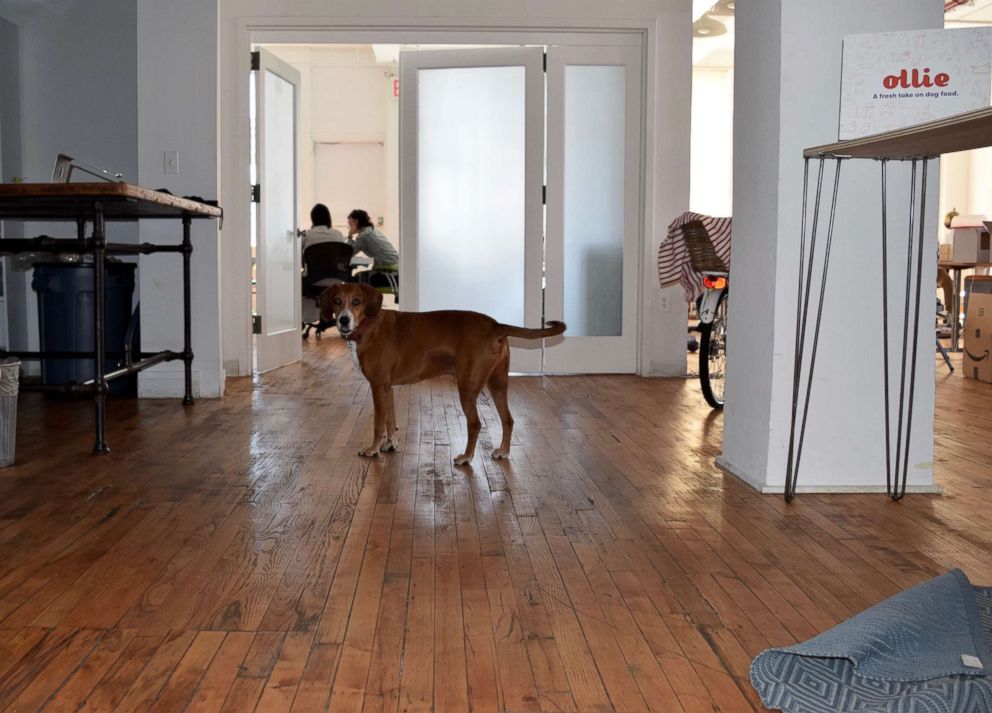Does your company have 'paw-ternity' leave? Companies offer perks for pet owners.
The pet food company allows employees to take off a week to care for a new dog.
Our pets have spoken: the “paw-renting revolution” is upon us, and a growing number of companies are trying to make their workplaces a happier place for our four-legged friends.
Ollie, a company that delivers customizable, all-natural dog food directly to pet-owners’ doors, is at the forefront of this revolution.
"We are a mission-driven company that seeks to create happier, healthier lives for our pets,” Ollie co-founder Gabby Slome told “Good Morning America.” “It was only fitting that we created a work environment where our own employees will have the space and resources to do just that.”

Slome knows that getting a new dog can be stressful, whether a young puppy or an older, adopted canine. It takes time to get to know them (let alone get them trained), which is why Ollie guarantees paid “paw-ternity” leave.
The policy allows employees to take up to a week of paid time off to care for and welcome a furry friend into their lives. The company also offers flexible paid maternity and paternity leave for its employees, allowing parents to take that leave anytime within the first year of their human child’s lives. Slome, who launched Ollie and had a baby within the span of one year, said her experience taught her about the need to be flexible when it comes to balancing work and family.
Mollie McGill, director of product design at Ollie, previously worked at a much larger company where she had no idea that dog-friendly workplaces even existed.
After she adopted her dog Cooper, a Labrador, Australian Shepherd and American Bully mix, while working at her former job, she used her last two sick days to get Cooper settled in when finding a last-minute dog-sitter proved to be impossible.

“Cooper had a difficult time adjusting to the new home, and that was incredibly stressful,” McGill told "GMA.” “So when a friend told me about Ollie just as I was searching for a new job, finding a dog-friendly workplace definitely influenced my decision to work here. [Co-founder] Gabby even had her puppy in the room during my job interview!”
And when Cooper got sick after she started working at Ollie, McGill said the level of compassion and understanding she received from her boss made her feel totally comfortable with taking time off to take Cooper to the vet and care for him at home.

Aside from providing employees with paid leave to care for their pups, Ollie ensures a pet insurance discount, provides free dog food and snacks, and guarantees paid sick leave and bereavement time for their pets, as “our dogs are basically members of the family,” Slome said.
Almost half of Ollie’s employees are dog-owners, who bring their dogs to work, and Slome notes how this has created a familial, friendly workplace community where coworkers can play with, and even help to dog-sit each other’s dogs.

Among the perks of having pets in the workplace include work-life balance, increased morale, and fewer absences among employees. In one study, employees who brought their dogs to work were found to also have reduced stress throughout the day compared to their colleagues without pets.
Major companies outside the pet industry have also taken steps to make the office a more pet-friendly place. Amazon, allow dogs in the office 365 days a year. As many as 6,000 dogs "work" alongside their owners at Amazon offices. Reception desks at the company's Seattle headquarters are stocked with dog treats, dog-friendly water fountains abound and one building even has a "doggie deck" with a fake fire hydrant.
Slome hopes that "one day it will no longer be just a trend, but the norm," when it comes to workplace perks.
“We want to create a workplace where it becomes possible to dedicate equal amounts of time to work and family,” Slome continued, adding that “it’s part of our work culture to serve dogs’ every need, and there’s no better inspiration for our work lives than to have a workplace that welcomes our own.”
ABC News' Katie Kindelan contributed to this report.




